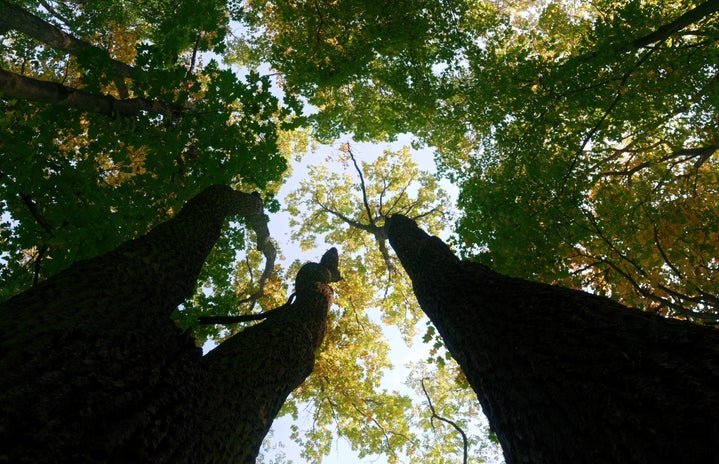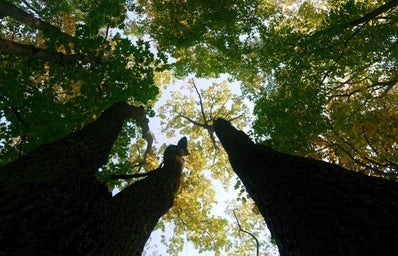“Everything we make returns to Earth as either food or poison” – Cèline Semaan
Earth Day has just passed, and not only have I been reflecting on my environmental impact, but I’ve also been thinking about the type of world that I want to emerge into after this pandemic has run its course and we go back to “normal.” This global pause has forced us to slow down, radically simplify our lives, and reflect on what is most important to us.
Although we’ve all heard people harping on about why we need to be more environmentally conscious, we must do more than just listen – we need to find tangible ways to make changes in our own lives. According to the United Nations 2030 Agenda for Sustainable Development, we only have 10 years left to prevent irreversible damage from climate change. There is no doubt that the climate crisis will affect every human life, and so we have a collective responsibility to come together and minimise this harm.
I know it all sounds doom and gloom, but the good news is that there are many ways that we can be a part of the change. And, it’s not as difficult as you’d think! Here are a few simple lifestyle changes that you can implement from the comfort of your home:
- Don’t toss it – compost it
-
Composting is basically free fertiliser for your vegetables, herbs, or houseplants. Not only will you be making your own, natural fertilizer, but you will also be saving the waste from taking up space in a landfill and increasing methane gas production – it’s a win-win! If you want to start composting, here is a beginner’s guide to composting at home video by Dominique Drakeford.
- Eco-bricks for the win
-
Making eco-bricks is something I only just discovered – and I’m obsessed! There are so many plastic products that we use every day, which can’t be recycled (plastic bags, many chip packets, cling wrap, a lot of food packaging, etc.). Eco-bricks are essentially empty 2-litre bottles that are stuffed with dry, non-recyclable plastic and used to build furniture, walls, and other structures. Eco-bricks are not a long-term solution for the issue of overproduction of single-use plastics and plastic pollution, but they are a great way to minimise your waste and decrease the amount of plastic that is sent to landfills. If you want to find out more about how to start eco-bricking, and where the drop-off stations are in Cape Town, head over to Waste-ED.
- Green Fingers
-
It’s time to get growing! Not everyone has the luxury of a large garden where they can start a full vegetable patch, but even if all you have space for is a few pots for herbs, starting a small produce garden is super fun – not to mention the feeling of pride that you get when you use home-grown ingredients in your cooking! I know we can’t head out to nurseries at the moment, but if you do want to plant some veggies, why not try using some seeds from veggies you already have at home (like, tomatoes, potatoes, onions, butternut, peppers, marrows – you name it)? Or, if you are looking to grow some herbs, here is a quick video that shows you how to propagate your own. If you don’t have plant pots, here are some nifty alternatives that you will definitely have lying around!
I’m currently re-growing spring onions, and it is as easy as placing them in a jar of water, to grow roots, and then popping them in some soil. Here’s a video that shows you exactly how to do it.
- Turn scraps into stock
-
Decreasing your environmental impact is all about finding ways to create less waste. This means finding creative ways to reuse things that would have otherwise gone to waste. On this note, did you know that you can freeze vegetable off-cuts (like onion skins, carrot peels, celery leaves, etc.) and turn them into vegetable stock – how cool?! There are so many recipes that call for vegetable stock, and now you can make your own. Here’s a very easy video that shows you how.
- Create your own natural beauty glow
-
At the moment, it’s much more difficult to access all the skincare and beauty products that we are used to having readily available. But, this is not necessarily a bad thing, because there are loads of ways to get creative and DIY your own, with simple products that you’ll find in your kitchen cupboard. Whether it’s a face mask, body butter, scrub – you name it – it is generally more eco-friendly to make your own, because are saving on packaging, and the ingredients you use are more natural – not to mention you are saving money too. Also, many commercial skincare products are imported from other countries, which means that their carbon footprint is huge. Brooke DeVard recently did a podcast episode on her podcast – The Naked beauty Podcast – where she shared her favourite DIY, home skincare recipes. Check it out next time you are having a self-care pamper day.
- Save the jars
-
Like I said earlier, minimising your impact is all about finding creative ways to upcycle and reuse items that would otherwise have gone to waste. Glass jars are another really easy place to start, because they are super durable and versatile. So many products come in glass jars – why not try repurposing them as storage containers for dry kitchen products, like grains, pasta or flours? You can even use them as vases or store leftover food in them. This saves you money on storage options and means that you can avoid buying plastic!
Here’s a quick and easy video that shows you how remove sticky labels from glass jars, so they are ready for reuse.
- Don’t forget: turn off the lights and unplug your devices
-
Honestly, we can all do this one – no excuses! Leaving the lights on in a room that you are not in is a total waste of electricity. Also, when you leave your devices plugged into the wall, even when you aren’t using them, they still consume energy. So, unplug and switch off! This is probably the simplest way to reduce your carbon footprint. If you are struggling to make turning off your lights and unplugging your devices a habit, put some bright sticky notes up next to your plug points and light switches so that they catch your eye when you leave the room.
I hope these tips have made you realise that reducing your impact is really not that difficult! And take one step at a time – slow progress is better than no progress. Pick one thing, turn it into a habit, and then choose the next thing that you want to try. So, let’s choose to be a part of the change – seriously, the world depends on it.


